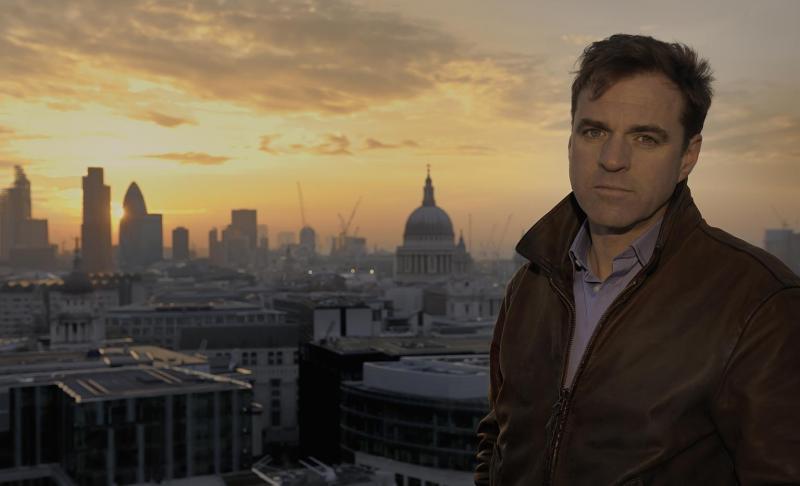


The two are not wildly far apart in their appreciation of the wonder of the West; indeed, Ferguson's accompanying book is subtitled The West and the Rest.
It is almost as if he sneers at his modern Western audience while illustrating why our forebears were so much more sophisticated and advanced than us
While his answers are defensible - competition, science, property rights, medicine, consumption, the Protestant work ethic - the methods he uses for presenting them are not. He talks in the programme of these explanations being "the six killer apps", the patronising tone of which phrase at least educates us as to what it must be like being an 18-year-old at Harvard, where Ferguson lectures. In an interview with The Guardian [5], he said that the book was written so his teenage children could understand the past five centuries, but I fail to see why he couldn't drop this tone in a prime-time slot on Channel 4, with his talk of "uploading the apps". It is almost as if he sneers at his modern Western audience while illustrating why our forebears were so much more sophisticated and advanced than us.
Nevertheless, Ferguson has picked an important question to answer, and goes at it like a man scaling Everest before breakfast; nothing is inexplicable in history but that he chooses not to explain it. He starts with the strength and boldness of China 500 years ago and shows how it crumbled from within, even as the Portuguese got uppity and set out for spices.
His view of the West seems even more limited than those four letters imply, since he refines it from the competition of the fragmentary, emulous mini-kingdoms of Early Modern Europe to an Anglo-Saxon idea of property and Protestantism. Basically, the British, French, Dutch and Germans - and our colonial cousins - have kept the world spinning. It is hard to argue the facts, but the morality is different, and Ferguson seems to have little time for those trodden in our march to the 21st century.
The irony of our situation, Ferguson wants us to understand, is that we have gone this far in 500 years only for the Chinese to benefit from it and beat us at our own game. Explanations for the rise of China, India and (soon) Africa hinge on their huge populations utilising (our) science and medicine and technology to thrive, and Ferguson seems to think we have engendered our own downfall in exporting them. Perhaps, but he is unwilling to perform a utilitarian calculation, weighing up saving billions from brief, poor lives against the risk of diminishing our own dominance. Again there is the sneer.
An interesting alternative view to Ferguson's pride is Jared Diamond's Guns, Germs and Steel [6], which, while far more deterministic than Ferguson, is at least not triumphalist. He looks through the history of the world, through evolution, and sees the advantages the West's geography and nature have given us; he does not consider Western man better or cleverer, as Ferguson seems to - just luckier.
Finally, one single letter in the title of the series is revealing: note the 'z'. This may seem like an orthographic trifle, but it tells you that he is coming from an American perspective. However, the perspective he has picked is out of date. Instead of the contemporary crisis of confidence we see across the Atlantic, Ferguson looks out from the shining era of the Eighties, when American civilisation actually meant something (for good or ill). Ferguson seems to want his series to be seen as a celebration of the West, but it comes across rather as an insensitive eulogy. The historian is stuck in history.
Links
[1] https://theartsdesk.com/users/joshspero
[2] https://www.addtoany.com/share_save
[3] https://theartsdesk.com/tv/culture-show-henry-moore-bbc-two
[4] https://theartsdesk.com/visual-arts/theartsdesk-florence-was-greatest-renaissance-show-ever-held
[5] http://www.guardian.co.uk/books/2011/feb/20/niall-ferguson-interview-civilization
[6] http://www.amazon.co.uk/Guns-Germs-Steel-history-everybody/dp/0099302780/ref=sr_1_1?ie=UTF8&qid=1299441732&sr=8-1
[7] http://www.channel4.com/programmes/civilization-is-the-west-history/4od#3170212
[8] http://www.amazon.co.uk/gp/search/ref=sr_tc_2_0?rh=i%3Astripbooks%2Ck%3ANiall+Ferguson&keywords=Niall+Ferguson&ie=UTF8&qid=1299442232&sr=8-2-ent&field-contributor_id=B000APQ8G0
[9] http://www.amazon.co.uk/gp/search/ref=sr_tc_2_0
[10] https://theartsdesk.com/tv
[11] https://theartsdesk.com/topics/documentary
[12] https://theartsdesk.com/topics/science
[13] https://theartsdesk.com/topics/channel-4
[14] https://theartsdesk.com/topics/history
[15] https://theartsdesk.com/topics/reviews